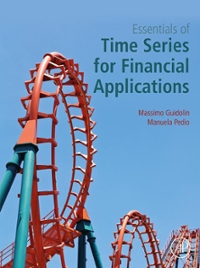Suppose that the constant marginal cost per trip of a taxi ride is $5, and that the average taxi has a capacity of 2D trips per day. Let the demand function for taxi rides be given by Dfp} = 1213'] Elly, where the demand is measured in rides per day, and price is measured in dollars. Assume that the industry is perfectly competitive. {1] 1What- is the competitive equilibrium price per ride? (Hint: in competitive equi librium, price must equal marginal cost.) \"that is the equilibrium number of rides per day? How many taxicabs will there be in equilibrium? {2] In 1990, the city council created a taxicab licensing board and issues a license to each of the existing cabs. The board stated that- it would continue to adjust. the taxicab fares so that the demand for rides equals the supply, but no new licenses will be issued in the future. In 1995 costs hadn't changed, but the demand curve for taxicab rides had become D[p] = 122D lp. What was the equilibrium price of a ride in 1995? 1 {3] What was the prot per ride in 1995, neglecting any costs associated with ac quiring a taxicab license? 'What was the profit per taxicab license per day? If the taxi operated everyday, what was the prot per taxicab license per year?I {4] [f the interest rate was 1% and costs, demand and the number of licenses were expected to remain constant forever, what would be the market price of a taxicab license? {5] Suppose that the board decided in 1995 to issue enough new licenses to reduce the taxicab price per ride to $5. How many more licenses would this take? {5) Assuming that the demand in the city is not going to grow any more, how much would a taxicab license be worth at this new fare? {7] How much money would each current taxicab owner be willing to pay to prevent- any new licenses form being issued? 1Li'ifhat is the total amount that all taxicab owners together would be willing to pay to prevent any new licenses from ever being issued? Would the total amount that the consumers would be willing to pay to have another taxicab license issued, be more than, less than or the same as this amount







